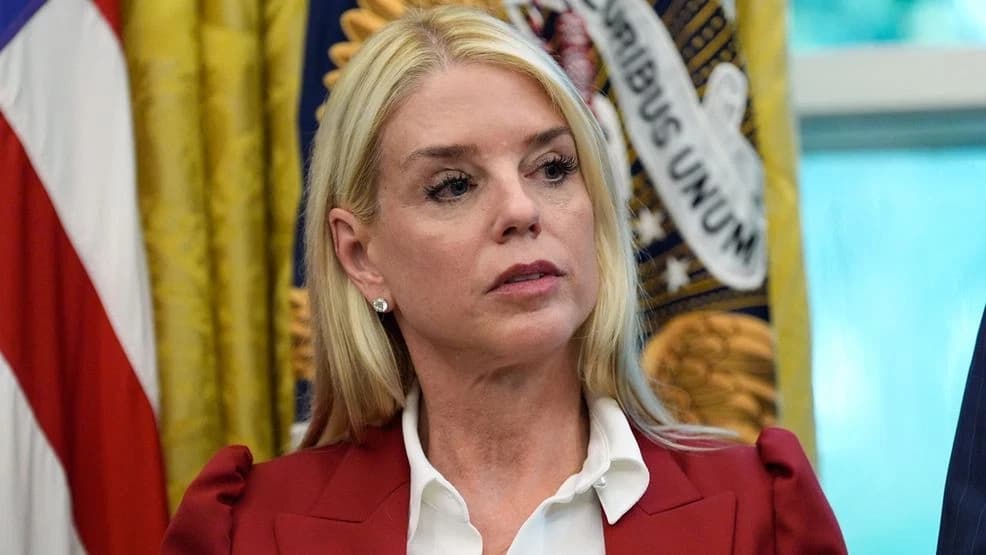We're loading the full news article for you. This includes the article content, images, author information, and related articles.
US Attorney General Pam Bondi's recent Senate Judiciary Committee testimony has ignited a fierce debate over the politicisation of justice, with implications for the independence of legal institutions globally, including in Kenya.

US Attorney General Pam Bondi faced intense scrutiny during a Senate Judiciary Committee hearing on Tuesday, October 7, 2025, as senators questioned her leadership and the perceived 'weaponisation' of the Justice Department. The contentious session, Bondi's first appearance at a congressional oversight hearing, comes two weeks after the indictment of former FBI Director James Comey, a move that has drawn sharp criticism from Democratic politicians and legal analysts.
Critics allege that Bondi has transformed the Justice Department into a tool for President Donald Trump to target political adversaries, undermining the crucial separation between the White House and the nation's top law enforcement agency. Senator Dick Durbin, the leading Democrat on the Senate Judiciary Committee, asserted that Bondi's tenure has left an "enormous stain in American history" due to the alleged politicisation of justice.
The political developments in the United States, particularly concerning the independence of its justice system, are closely watched in Kenya, a nation with deep strategic and diplomatic ties to the US. Since Kenya's independence in 1963, the two countries have maintained a mutually beneficial partnership across various sectors, including security, economic development, and governance.
The US has consistently viewed Kenya as a geostrategic anchor in East Africa, a region where global powers compete for influence. This partnership has evolved, culminating in a "Strategic Partnership" pact in 2018.
In Kenya, the Office of the Attorney General, established under Article 156 of the 2010 Constitution, serves as the principal legal advisor to the national government. The Attorney General is tasked with promoting the rule of law, defending public interest, and representing the government in civil and constitutional matters. The Kenyan Attorney General is also responsible for advising government ministries on legislative and legal matters, drafting legislative proposals, and overseeing legal matters related to various registrations.
The Kenyan Senate, similar to its US counterpart, plays a critical oversight role. The Constitution of Kenya (Amendment) Bill, 2025, currently undergoing public hearings, seeks to expand the Senate's legislative and oversight mandate, including its role in vetting State officers and participating in the national budget-making process. This proposed expansion aims to enhance accountability and reduce the dominance of the National Assembly.
The indictment of James Comey, occurring just days after President Trump publicly demanded action against his political foes, has fueled concerns about the politicisation of the Justice Department. Attorney General Bondi, however, maintained that her department is committed to holding those who abuse power accountable and that politics play no part in her decisions.
In Kenya, the Judiciary is established as an independent custodian of justice, mandated to exercise judicial authority derived from the people. The ongoing public participation on the Constitution of Kenya (Amendment) Bill, 2025, demonstrates a strong public desire for enhanced accountability and a balanced legislative process, with citizens advocating for joint vetting of State officers to curb corruption.
While the immediate impact of US political events on Kenya is often indirect, shifts in US foreign policy can have significant implications. For instance, past US administrations have influenced Kenya's democracy and governance through aid and diplomatic pressure. The Trump administration's previous aid cuts and decisions regarding USAID had implications for US-Kenya relations, though the full impact of assistance cuts in Kenya was not entirely clear.
Kenya's status as a Major Non-NATO Ally (MNNA), granted by the Biden administration in May 2024, offers various benefits, including security, economic, financial, and military assistance. However, a potential shift in US foreign policy under a new administration could lead to a repudiation of this status or changes in aid allocation, impacting Kenya's security and development initiatives.
The indictment of James Comey has been met with controversy, with some legal experts questioning the strength of the case and suggesting it is politically motivated. The lack of specific details regarding the alleged false statement in the indictment has also raised concerns.
In Kenya, while there is broad public support for strengthening the Senate's role, some stakeholders have warned that certain provisions in the Constitution of Kenya (Amendment) Bill, 2025, could raise constitutional and legal concerns.
Attorney General Pam Bondi's testimony before the Senate Judiciary Committee took place on Tuesday, October 7, 2025. James Comey is scheduled to appear in court on Wednesday, October 8, 2025.
In Kenya, public participation sessions on the Constitution of Kenya (Amendment) Bill, 2025, began on Monday, October 6, 2025, in Busia County. The Bill is scheduled for its second reading on Thursday, November 6, 2025.
Observers will be closely watching the outcome of James Comey's legal proceedings and any further developments regarding the independence of the US Justice Department. In Kenya, the progress of the Constitution of Kenya (Amendment) Bill, 2025, through Parliament and the resolution of any constitutional concerns will be key areas to monitor. The broader implications of US political shifts on aid, trade, and security partnerships with Kenya will also remain a critical focus.
Keep the conversation in one place—threads here stay linked to the story and in the forums.
Sign in to start a discussion
Start a conversation about this story and keep it linked here.
Other hot threads
E-sports and Gaming Community in Kenya
Active 9 months ago
The Role of Technology in Modern Agriculture (AgriTech)
Active 9 months ago
Popular Recreational Activities Across Counties
Active 9 months ago
Investing in Youth Sports Development Programs
Active 9 months ago